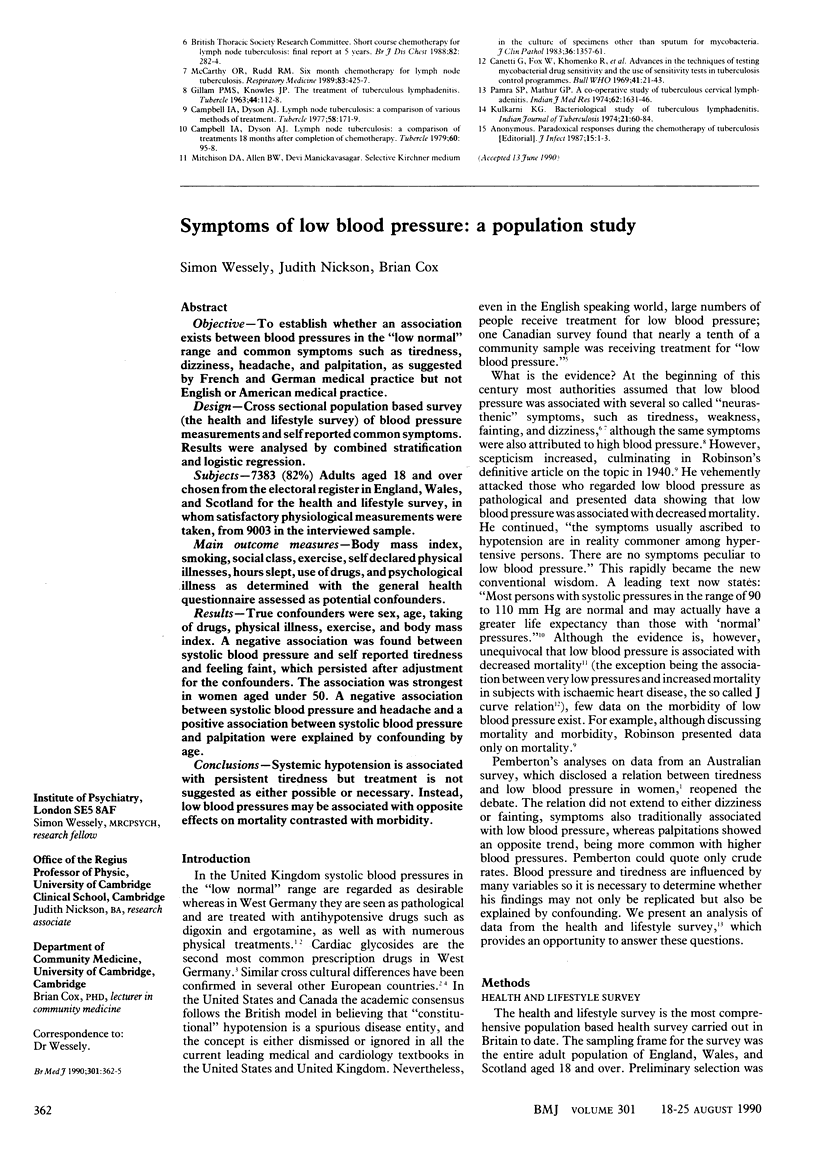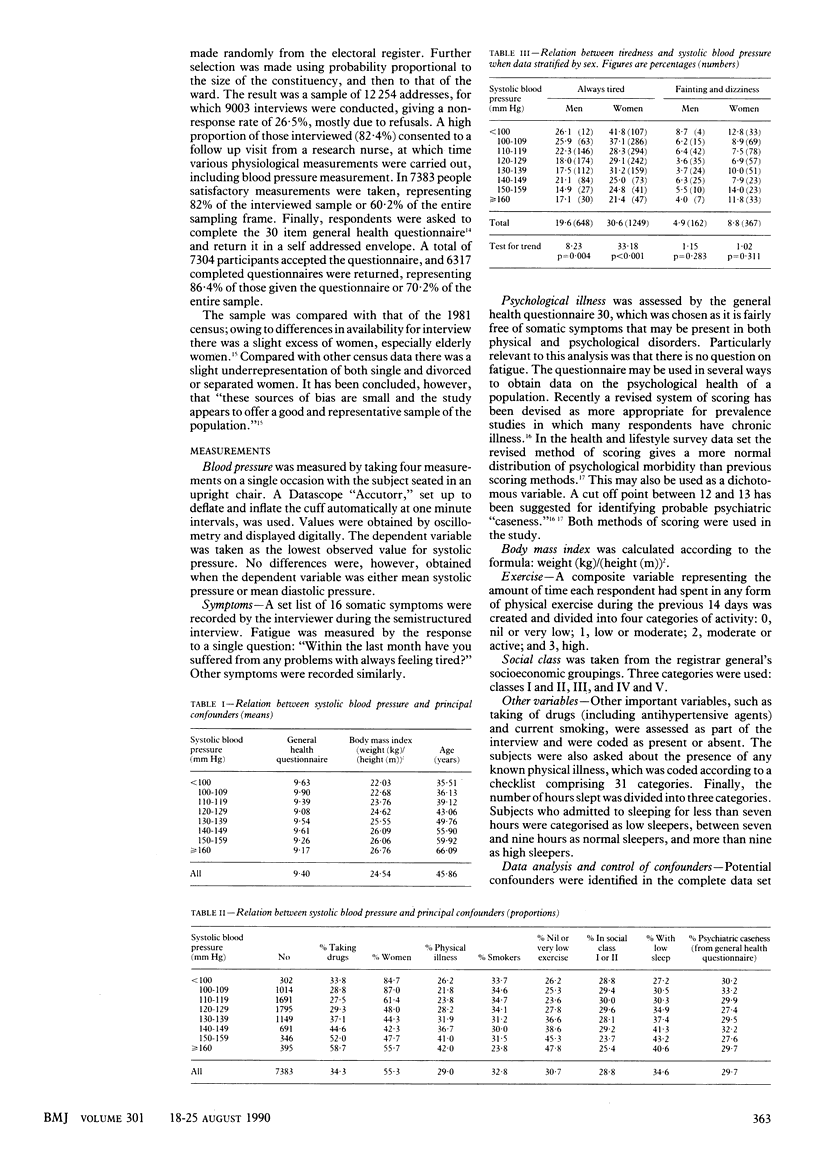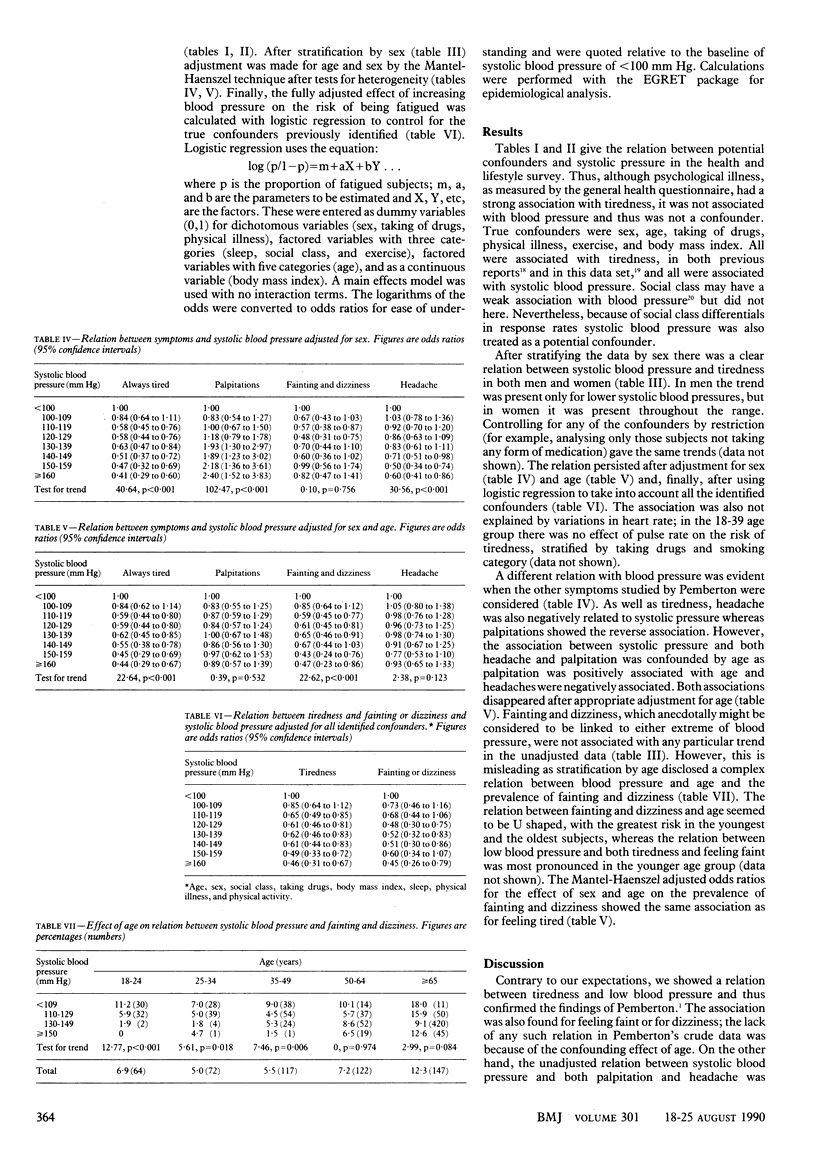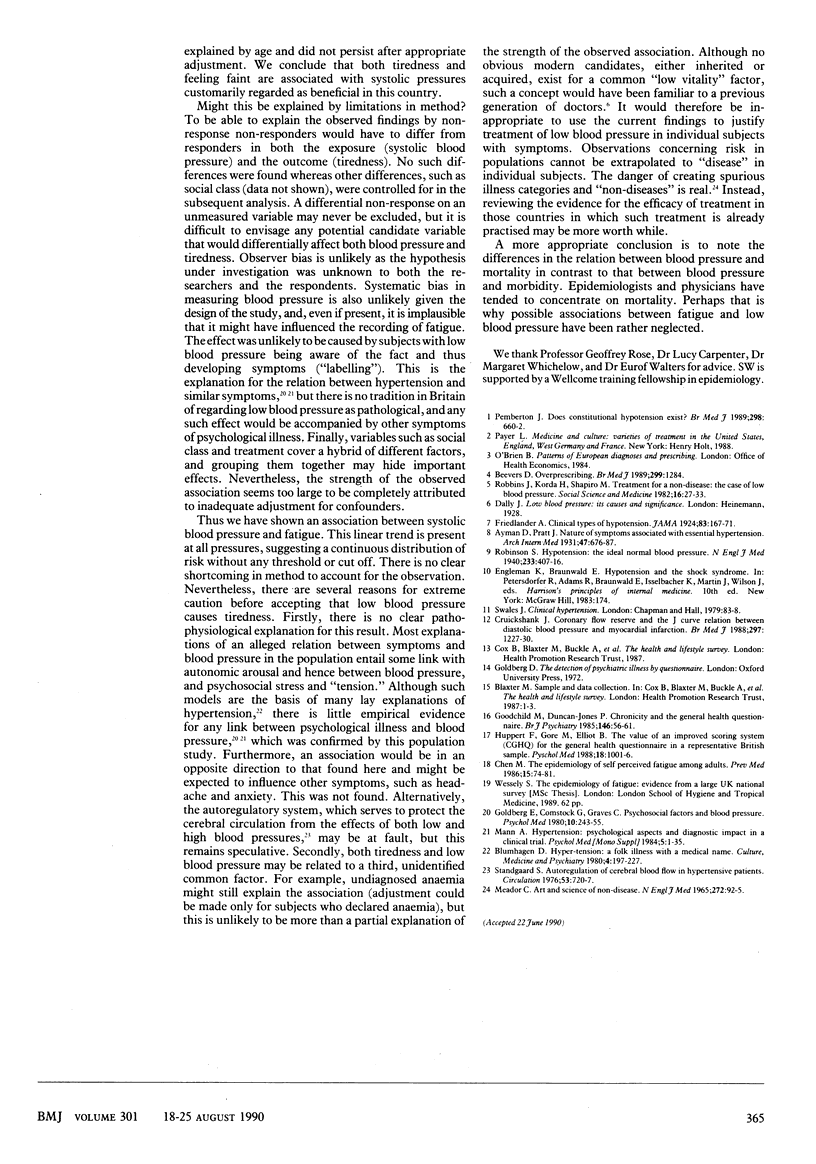Abstract
OBJECTIVE--To establish whether an association exists between blood pressures in the "low normal" range and common symptoms such as tiredness, dizziness, headache, and palpitation, as suggested by French and German medical practice but not English or American medical practice. DESIGN--Cross sectional population based survey (the health and lifestyle survey) of blood pressure measurements and self reported common symptoms. Results were analysed by combined stratification and logistic regression. SUBJECTS--7383 (82%) Adults aged 18 and over chosen from the electoral register in England, Wales, and Scotland for the health and lifestyle survey, in whom satisfactory physiological measurements were taken, from 9003 in the interviewed sample. MAIN OUTCOME MEASURES--Body mass index, smoking, social class, exercise, self declared physical illnesses, hours slept, use of drugs, and psychological illness as determined with the general health questionnaire assessed as potential confounders. RESULTS--True confounders were sex, age, taking of drugs, physical illness, exercise, and body mass index. A negative association was found between systolic blood pressure and self reported tiredness and feeling faint, which persisted after adjustment for the confounders. The association was strongest in women aged under 50. A negative association between systolic blood pressure and headache and a positive association between systolic blood pressure and palpitation were explained by confounding by age. CONCLUSIONS--Systemic hypotension is associated with persistent tiredness but treatment is not suggested as either possible or necessary. Instead, low blood pressures may be associated with opposite effects on mortality contrasted with morbidity.
Full text
PDF



Selected References
These references are in PubMed. This may not be the complete list of references from this article.
- Beevers D. G. Overprescribing. BMJ. 1989 Nov 18;299(6710):1284–1284. doi: 10.1136/bmj.299.6710.1284-c. [DOI] [PMC free article] [PubMed] [Google Scholar]
- Blumhagen D. Hyper-tension: a folk illness with a medical name. Cult Med Psychiatry. 1980 Sep;4(3):197–224. doi: 10.1007/BF00048414. [DOI] [PubMed] [Google Scholar]
- Chen M. K. The epidemiology of self-perceived fatigue among adults. Prev Med. 1986 Jan;15(1):74–81. doi: 10.1016/0091-7435(86)90037-x. [DOI] [PubMed] [Google Scholar]
- Cruickshank J. M. Coronary flow reserve and the J curve relation between diastolic blood pressure and myocardial infarction. BMJ. 1988 Nov 12;297(6658):1227–1230. doi: 10.1136/bmj.297.6658.1227. [DOI] [PMC free article] [PubMed] [Google Scholar]
- Goldberg E. L., Comstock G. W., Graves C. G. Psychosocial factors and blood pressure. Psychol Med. 1980 May;10(2):243–255. doi: 10.1017/s0033291700044007. [DOI] [PubMed] [Google Scholar]
- Goodchild M. E., Duncan-Jones P. Chronicity and the General Health Questionnaire. Br J Psychiatry. 1985 Jan;146:55–61. doi: 10.1192/bjp.146.1.55. [DOI] [PubMed] [Google Scholar]
- Huppert F. A., Gore M., Elliott B. J. The value of an improved scoring system (CGHQ) for the General Health Questionnaire in a representative community sample. Psychol Med. 1988 Nov;18(4):1001–1006. doi: 10.1017/s0033291700009922. [DOI] [PubMed] [Google Scholar]
- Mann A. Hypertension: psychological aspects and diagnostic impact in a clinical trial. Psychol Med Monogr Suppl. 1984;5:1–35. doi: 10.1017/s026418010000196x. [DOI] [PubMed] [Google Scholar]
- Pemberton J. Does constitutional hypotension exist? BMJ. 1989 Mar 11;298(6674):660–662. doi: 10.1136/bmj.298.6674.660. [DOI] [PMC free article] [PubMed] [Google Scholar]
- Robbins J. M., Korda H., Shapiro M. F. Treatment for a nondisease: the case of low blood pressure. Soc Sci Med. 1982;16(1):27–33. doi: 10.1016/0277-9536(82)90420-8. [DOI] [PubMed] [Google Scholar]
- Strandgaard S. Autoregulation of cerebral blood flow in hypertensive patients. The modifying influence of prolonged antihypertensive treatment on the tolerance to acute, drug-induced hypotension. Circulation. 1976 Apr;53(4):720–727. doi: 10.1161/01.cir.53.4.720. [DOI] [PubMed] [Google Scholar]


